- Home
- Peter F. Hamilton
Pandora's Star Page 3
Pandora's Star Read online
Page 3
All the while as the Carlton bobbed cautiously along the track, Dudley slumped back in the driver’s seat thinking how he could realistically break the news. Even a twenty-three-hour envelopment was a concept which the Commonwealth’s small fraternity of professional astronomers would dismiss out of hand. To claim it had happened in a split second would open him to complete ridicule, and invariably an in-house status review from the university. As to the physicists and engineers who heard his claim . . . they’d gleefully contribute to the case against him.
Had he been at the start of his career he might have done it, achieving a degree of notoriety before finally proving himself right. The little man overcoming formidable odds, a semi-heroic, or at least romantically poetic, figure. But now, taking such risks was too great. He needed another eight years of uninterrupted employment, even on the university’s demeaningly low salary, before his R & R pension was full; without that money there was no way he could pay for a rejuvenation. And who in the last decades of the twenty-fourth century was going to employ a discredited astronomer?
He stared out at the landscape beyond the vehicle’s windows, unconsciously stroking the OCtattoo on his ear. A wan light was illuminating the low undulating landscape of drab damp cordgrass, revealing miserable looking terrestrial cows and herds of the local bovine nygine. There must have been a horizon out there, but the bleak, grey sky made it hard to tell where it began. As vistas went, this had to be one of the most depressing of all the inhabited worlds.
Dudley closed his eyes and sighed. ‘And yet it moves,’ he whispered.
*
As rebellions went, Dudley’s was fairly pitiful. He knew he couldn’t ignore what he’d seen out there among the eternal, unchanging constellations. Somewhat thankfully, he realized, he still had enough dignity left to make sure he didn’t take the easy burial option. Yet announcing the envelopment to the public would be the end of his own particular world. What others regarded as his essential meekness, he liked to think of as a caution that went with age. Similar to wisdom, really.
Old habits die hard, so he broke the problem down into stages, the way he always taught his students, and set about solving each one with as much logic as he could apply. Very simply, his overwhelming priority was to confirm the speed of envelopment. A wavefront of proof that was currently receding from Gralmond at the speed of light. And Gralmond was almost the furthest extent of the Commonwealth in this section of space. Almost, but not quite.
The Intersolar Commonwealth occupied a roughly spherical volume of space with Earth at the centre, extending out to phase three space which CST was now opening up for settlement. Gralmond was two hundred and forty light-years out from the old homeworld, one of the last planets of phase two space to be settled. It didn’t require a great deal of calculation for Dudley to find that the next planet to witness the envelopment would be neighbouring Tanyata, a world even less developed than Gralmond. It didn’t yet have a university; but a unisphere datasearch did find him a list of local amateur astronomers. There was one name on it.
Five months and three days after the evening he’d seen Dyson Alpha vanish, Dudley nervously waved goodbye to his wife as the Carlton pulled out of their driveway. She thought his trip to Tanyata was legitimate, sanctioned by the university. Even after eleven years of marriage, he didn’t have the courage to tell her the absolute truth. Or maybe, after five marriages, he knew what to keep quiet about.
The Carlton drove him directly to the CST planetary station, on the other side of Leonida City from the university campus. Spring was just arriving, bringing with it a sprinkling of vivid green buds to the branches of the terrestrial saplings in the city’s parks. Even the full-grown native trees were responding to the longer, brighter days; their dark-purple bark had acquired a new lustrous sheen as they prepared to unfurl their leaf awnings. Dudley watched the city’s residents from his seat, business people and office staff striding about with purpose; parents being tolerant or exasperated with their kids; first-life adolescents milling about together outside coffee houses and mall entrances, hopelessly gauche yet still managing to look like the most lethal gang-members in human history. All of them so bright and normal. It was the main reason Dudley had chosen to settle here late in his second life. Frontier planets always had that infectious air of expectation and hope; this was where new dreams really could take root and grow. And he’d done so little with that second life. His slightly desperate relocation here was an acknowledgement of that.
CST had opened their planetary station on Gralmond over twenty-five years ago. About the time Dudley was getting his colourful OCtattoo, in fact – an irony which hadn’t escaped him. The planet had done well for itself during its first quarter century of human history. Farmers had come, and set their tractorbots and herds loose on the land. Urbanites brought their prefab buildings which they lined up in neat grids and called cities in homage to the great metropolises they hoped would one day evolve from such humble beginnings. Factories were imported, riding in on the strong tide of investment money; hospitals, schools, theatres and government offices multiplied fruitfully around them. Roads expanded out from the population centre, sending exploratory tendrils across the continent. And, as always, the trains came after them, bearing the greater load of commerce.
Dudley’s Carlton drove along the side of the Mersy rail route as he neared CST’s planetary station. A simple chain-link fence and a plastic safety barrier was all that separated the dual-lane highway from the thick lines of carbon-bonded steel rails. The Mersy rail route was one of five major track lanes which had so far been laid out of the station. Gralmond’s population were rightly proud of them. Five in twenty-five years: a good sign of a healthy expanding economy. Three of the rail routes, including the Mersy, led away to vast industrial parks squatting on the outskirts of Leonida City, while the remaining pair stretched out into the countryside, where they forked again and again, connecting with the principal agricultural towns. Goods flowed in and out of the CST planetary station day and night, slowly increasing in quantity as the years progressed; circulating money, material, and machinery across fresh lands, advancing the human boundary month by month.
A big freight train grumbled alongside, going only slightly faster than the Carlton. Dudley looked over at the sound, seeing long olive-green wagons rolling along steadily. The sulphur-yellow lettering on their sides had faded from age and sunlight. There must have been fifty of them linked together, all pulled along by a giant twenty-wheel engine. It was one of the GH7 class engines, he thought, though which particular marque he wasn’t sure; those brutes had been in use for nearly eighty years, a thirty-five-metre body filled with superconductor batteries, powering massive electric axle motors. Gralmond wouldn’t see anything bigger until the planet reached full industrialization status, in maybe another seventy years or so.
Already, such a monster trundling through the flourishing city seemed slightly incongruous. This district still had a lot of the original prefab buildings in place, two- or three-storey cubes of whitened aluminium with solar cell roofs. Redevelopment was hardly necessary on a world where land wasn’t merely cheap, the government actually gave it away to anyone who asked for it. Gralmond’s total population barely reached eighteen million, nobody was crowded here. The prefabs, however, remained as useful housing and commercial centres for the newest and poorest arrivals. But there were some city blocks of the shabby metal boxes which had been taken down completely and replaced by new stone or glass-fronted buildings as the local economy bootstrapped itself upwards. More common was the encroachment of drycoral, a plant originally found on Mecheria. New residents planted the genetically tailored kernels along the base of their houses, carefully tending the long flat strands of spongy pumice-like stone which grew quickly up the walls, broadening out to form a sturdy organic shell around the entire structure, with simple pruning keeping the windows clear. Colours were mixed and twined skilfully, forming elaborate patterns, making each building individual, br
eaking the neighbourhood’s monotony. No matter how bad the dust and grime from the roads, the drycoral would absorb the granules, keeping the facade’s marquetry clean and vivid.
As the urban gentrification continued, so the Mersy tracks seemed more and more out of place. Several sections of the chain-link fence now had shoots of drycoral growing up it, screening off the ugly rails from the smart houses and apartments nearby.
The passenger terminus was only a small part of the ten square kilometres that was the CST planetary station; most of the area was given over to marshalling yards and engineering works. At one end was the gateway itself, sheltered from the weather beneath the single broad span of an arching roof made from crystal and white concrete. Dudley could barely remember it from his arrival eleven years ago, not that it would have changed. They never did.
The Carlton dropped him off at the departures rank at the front of the terminal, then trundled off back home as soon as he stepped out with his luggage. He walked into the station to find himself immersed in a throng of people who seemed to be going in every direction but the one he wanted. Even though it was relatively new, the concourse had an old-fashioned look to it: tall marble pillars held up a high glass roof; franchise stalls lurked in the cathedral-style archways; the short stairways between levels were implausibly wide, as though they led to some hidden palace; statues and sculptures occupied deep, high alcoves, their every flat surface covered in bird droppings. Big translucent holographic projections hung in the air, crimson and emerald signs which backed up the train timetable information for anyone who didn’t have an interface with the local network; little birds zipped through them continuously, hooting in puzzlement at the trail of sparkles their membranous wings whipped up.
‘The Verona train is leaving from platform nine,’ Dudley’s e-butler told him.
He set off down the concourse towards the platform. Verona was a regular destination, with a train leaving every forty minutes. There were a lot of commuters from there, middle management types from the finance and investment companies who were involved with setting up and running Gralmond’s civil infrastructure.
The Verona train was made up from eight double-decker carriages hooked up to a medium-sized PH54 engine. Dudley shoved his cases into the baggage compartment on the fifth carriage, and climbed on board, finding an empty seat by one of the upper deck windows. Then there was nothing to do but try and ignore his growing tension as the timer display in his virtual vision counted down towards departure time. There were seven messages for him in his e-butler’s hold file; half of which were from his students containing both data and audio clusters.
The last five months had been extraordinarily busy for the small university astronomy department; even though there had been no stellar observations made in all that time. Dudley had declared that the state of the telescope and its instruments was no longer acceptable, and that they’d been neglecting the practical side of their profession. Under his supervision, the tracking motors had been dismantled and serviced one by one, then the bearings, followed by the entire sensor suite. With the telescope out of commission, they also had the opportunity to upgrade and integrate the specialist control and image analysis programs. At first the students had welcomed the chance to get their hands dirty and improve the available systems. But that initial enthusiasm had long since faded as Dudley kept finding them new and essential tasks which delayed re-commissioning.
Dudley hated deceiving them, but it was a legitimate way of suspending the whole Dyson Pair observation project. He told himself that if he could just secure the evidence, then the impact it would have on their department and its budget would more than justify the small subterfuge. It was only during the last couple of months as he put up with all their complaints that he’d begun to think of the effect a verified envelopment might have on his own career and fortunes. Failure to back up the observation would have ruined him; success, on the other hand, opened up a whole new realm of prospects. He could well progress far beyond anything Gralmond University could offer. It was a pleasant daydream to lose himself in.
The train started moving, pulling away from the platform and out into the spring sunshine. All Dudley could see through the window was the industrial landscape of the station yard, where hundreds of tracks snaked across the ground crossing and re-crossing each other like some vast abstract maze. Single wagons and carriages were being moved about by small shunting engines that coughed out thick plumes of diesel exhaust. The only visible horizon seemed to be made from warehouses and loading bays, where the spidery gridwork of gantry cranes and container stackers wove through every section of the big open structures. Flatbed carriages and fat tankers were being readied or unloaded within the mechanical systems which almost engulfed them. Engineering crews and maintenancebots crawled along several tracks, performing repairs.
Traffic began to increase on the tracks around them as they headed for the gateway; long cargo trains alternating with smaller passenger carriers. All of them snaked their way over junctions with sinuous motions, arrowing in towards the final stretch of track. On the other side of the carriage, Dudley could see a near continual stream of trains emerging from the gateway.
There were only two tracks leading to the gateway: one inbound, one outbound. The Verona train finally slotted on to the outbound stretch, fitting in behind the passenger train for EdenBurg. A freighter bound for StLincoln slotted in behind them. A low warning tone chimed through the carriage. Dudley could just see the edge of the curving gateway roof ahead of them. The light dimmed fractionally as they passed underneath. Then there was just the wide shimmering amber oval of the gateway dead ahead, so reminiscent of an old-fashioned tunnel entrance. The train slid straight into it.
Dudley felt a slight tingle on his skin as the carriage passed through the pressure curtain which prevented the atmospheres of the two worlds from mixing. Even though it spanned a hundred and eighteen light-years, the wormhole itself had no internal length. The generator machinery which created it, however, had a considerable bulk, most of which was tucked away in the massive concrete support buildings behind the roof. It was only the emission units which were contained in the great oval hoop of the gateway, measuring over thirty metres thick. Given the speed the train was travelling, even that flashed past in a second.
Glorious copper twilight streamed in through the carriage windows. Dudley’s ears popped as the new atmosphere flooded into the carriage through the rooftop vents. He looked out at the massive expanse that was CST’s Verona station. There was no visible end to it, no glimpse of the megacity which he knew lay beyond. One edge of the station was a solid cliff of gateways, sheltering under their curving single-span roofs, each oval framing a slightly different coloured patch of haze depending on the spectral class of the star whose world they reached. But for the rest of it, as far as the eye could see, trains and tracks were the sole landscape. Behemoth freighters rolled along, their engines dwarfing the GH7s which had so impressed Dudley; nuclear-powered tractor units pulling two-kilometre chains of wagons. Sleek white passenger expresses flashed past pulling dozens of carriages; multiworld commuters, whose route would take them through twenty or more planets as they rushed from gateway to gateway on a neverending circuit. Simple little regional trains like the one Dudley was on shuffled between their larger, grander cousins. Verona station had them all.
As Earth was the junction world for all the planets in phase one space of the Intersolar Commonwealth, so Verona was the major junction for this section of phase two space, with gateways leading to thirty-three planets. It was one of the so-called Big15; the industrial planets established out along the rim of phase one space, a hundred or so light-years from Sol. Company founded, company funded, and company run.
Verona station boasted seven passenger terminals; Dudley’s train pulled in to number three. Again the scale of the place hit home, this terminal alone was five times the size of Gralmond’s planetary station. Verona’s thicker atmosphere and slightly heavier
gravity contributed to his feeling of triviality as he wandered along the packed concourse in search of the Tanyata service. He found it eventually on platform 18b; three single-deck carriages pulled by a diesel-powered Ables RP2 engine. His luggage went on an overhead rack, and he sat on a double seat by himself. The carriage was less than a third full. There were only three trains a day to Tanyata.
When he arrived, he could see why there were so few scheduled services. Tanyata was very definitely a frontier planet; the last to be established in this sector of phase two space. It simply wasn’t commercially practical to build worm-holes that reached any further. Verona would link no more Human-Congruent planets; that honour now fell to Saville, which was less than ten light-years from Gralmond. CST was already building its new exploratory base there, preparing to open wormholes to a new generation of star systems: phase three space, the next wave of human expansion.
The CST Tanyata station was just a couple of hurriedly assembled boronsteel platforms under a temporary plastic roof. A crane and a warehouse comprised the entire cargo section, backing onto a vast muddy yard where stacked metal containers and tanks formed long rows on the badly mown vegetation. Wagons and trucks grumbled along the aisles, loading up with supplies. The settlement itself was a simple sprawl of standardized mobile cabins for the construction crews who were laying down the first stage of the planet’s civil infrastructure. Quite a few prefab buildings were being integrated, with men and big manipulatorbots slotting reinforced aluminium modules together inside a matrix of carbon beams. The biggest machines were the roadbuilders, tracked minifactories with big harmonic blades at the front chewing up soil and clay. A chemical reactor processed the material into enzyme-bonded concrete which was squeezed out at the rear to form a flat level surface. The thick clouds of steam and fumes swirling out from around the units made it virtually impossible to see them fully.

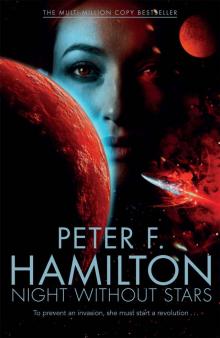 A Night Without Stars
A Night Without Stars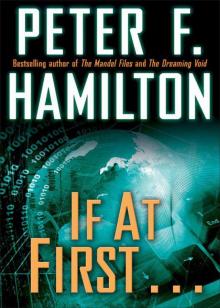 If at First . . .
If at First . . .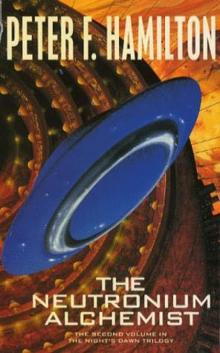 The Neutronium Alchemist
The Neutronium Alchemist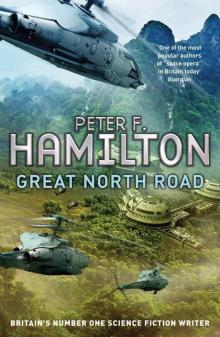 Great North Road
Great North Road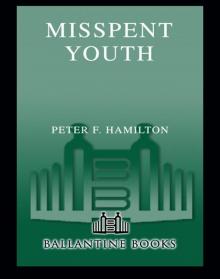 Misspent Youth
Misspent Youth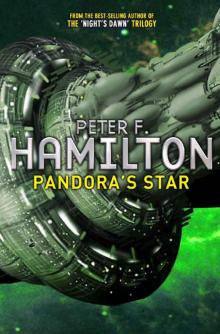 Pandora's Star
Pandora's Star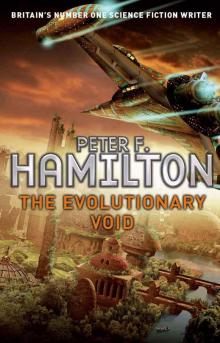 The Evolutionary Void
The Evolutionary Void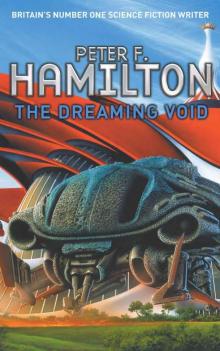 The Dreaming Void
The Dreaming Void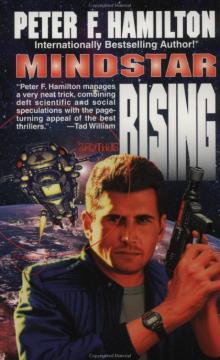 Mindstar Rising
Mindstar Rising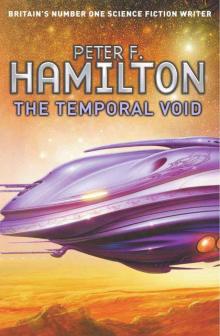 The Temporal Void
The Temporal Void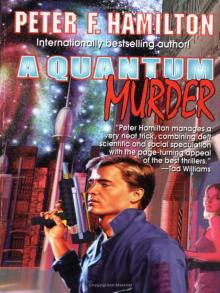 A Quantum Murder
A Quantum Murder The Hunting of the Princes
The Hunting of the Princes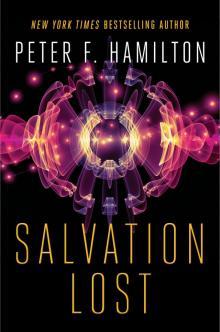 Salvation Lost
Salvation Lost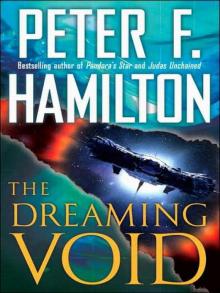 The Dreaming
The Dreaming Salvation
Salvation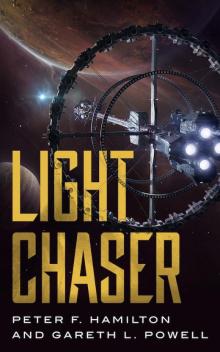 Light Chaser
Light Chaser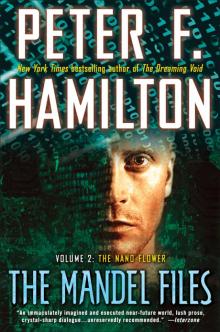 The Mandel Files, Volume 2: The Nano Flower
The Mandel Files, Volume 2: The Nano Flower![The Saints of Salvation [British Ed.] Read online](http://i1.bookreadfree.com/22/the_saints_of_salvation_british_ed__preview.jpg) The Saints of Salvation [British Ed.]
The Saints of Salvation [British Ed.]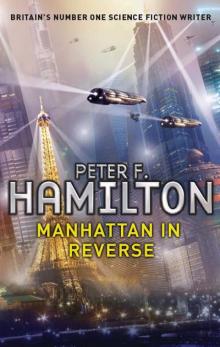 Manhattan in Reverse
Manhattan in Reverse The Secret Throne
The Secret Throne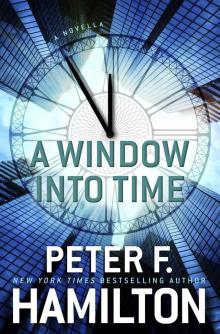 A Window Into Time
A Window Into Time A Second Chance at Eden
A Second Chance at Eden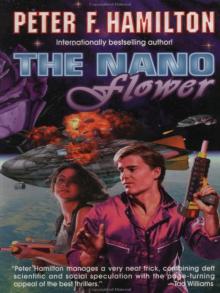 The Nano Flower
The Nano Flower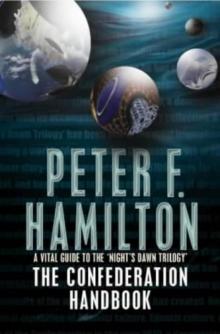 The Confederation Handbook
The Confederation Handbook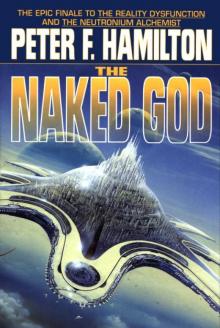 The Naked God
The Naked God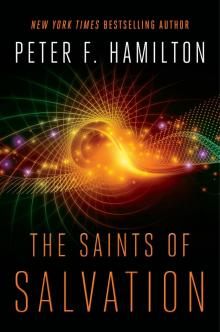 The Saints of Salvation
The Saints of Salvation The Void Trilogy 3-Book Bundle
The Void Trilogy 3-Book Bundle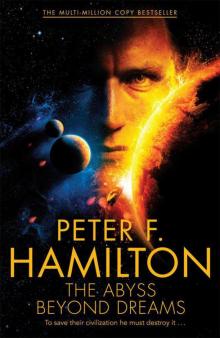 The Abyss Beyond Dreams
The Abyss Beyond Dreams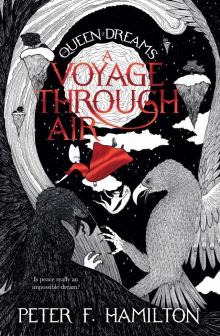 A Voyage Through Air
A Voyage Through Air Judas Unchained
Judas Unchained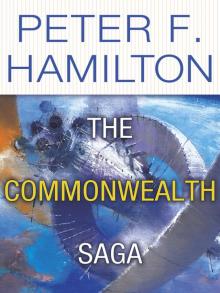 The Commonwealth Saga 2-Book Bundle
The Commonwealth Saga 2-Book Bundle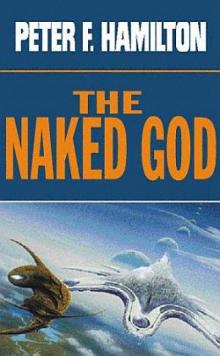 The Naked God - Flight nd-5
The Naked God - Flight nd-5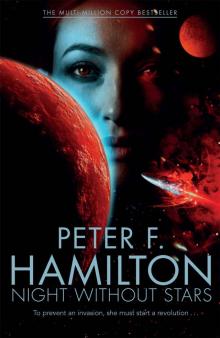 Night Without Stars (Chronicle of the Fallers Book 2)
Night Without Stars (Chronicle of the Fallers Book 2)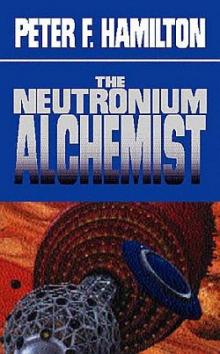 Neutronium Alchemist - Conflict nd-4
Neutronium Alchemist - Conflict nd-4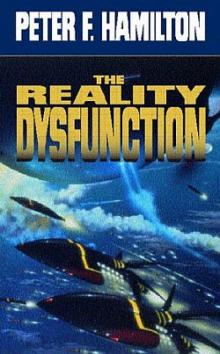 Reality Dysfunction - Expansion nd-2
Reality Dysfunction - Expansion nd-2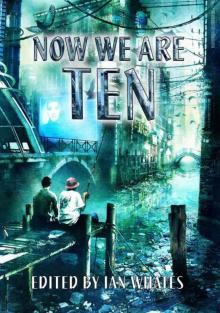 Now We Are Ten: Celebrating the First Ten Years of NewCon Press
Now We Are Ten: Celebrating the First Ten Years of NewCon Press Neutronium Alchemist - Consolidation nd-3
Neutronium Alchemist - Consolidation nd-3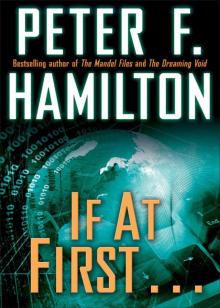 If at First . . . (Short Story)
If at First . . . (Short Story)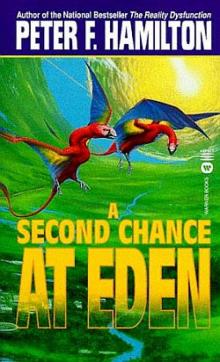 A Second Chance at Eden nd-7
A Second Chance at Eden nd-7 Judas Unchained cs-2
Judas Unchained cs-2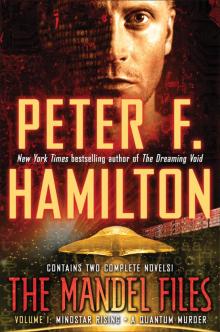 The Mandel Files, Volume 1
The Mandel Files, Volume 1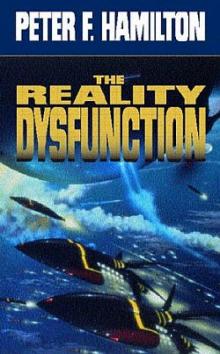 Reality Dysfunction — Emergence nd-1
Reality Dysfunction — Emergence nd-1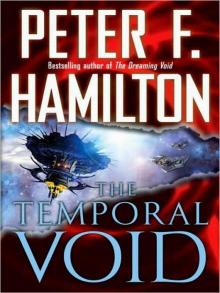 The Temporal Void (ARC)
The Temporal Void (ARC) The Mandel Files
The Mandel Files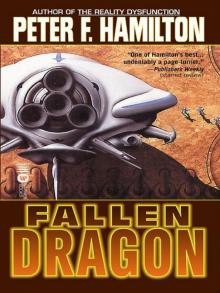 Fallen Fragon
Fallen Fragon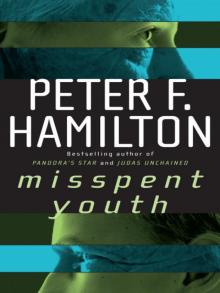 Misspent Youth (commonwealth saga)
Misspent Youth (commonwealth saga)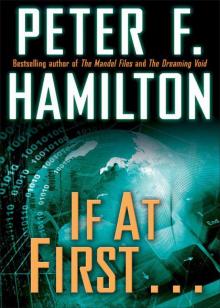 If at First...
If at First...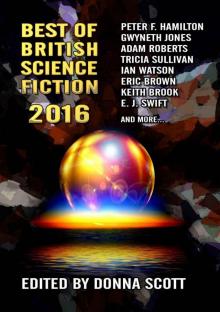 Best of British Science Fiction 2016
Best of British Science Fiction 2016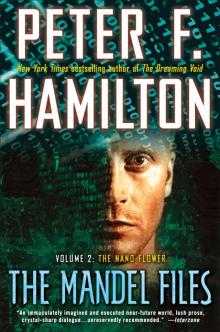 The Mandel Files, Volume 2
The Mandel Files, Volume 2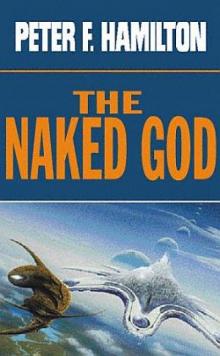 The Naked God - Faith nd-6
The Naked God - Faith nd-6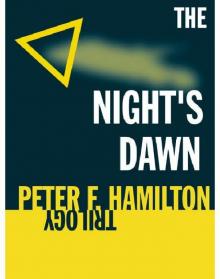 The Night's Dawn Trilogy
The Night's Dawn Trilogy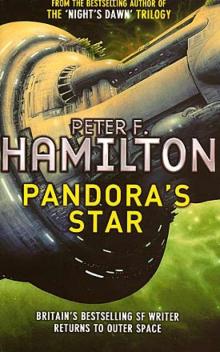 Pandora's Star cs-2
Pandora's Star cs-2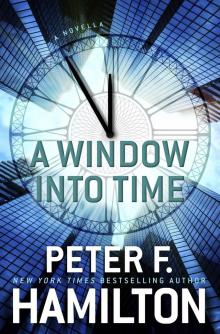 A Window into Time (Novella)
A Window into Time (Novella)